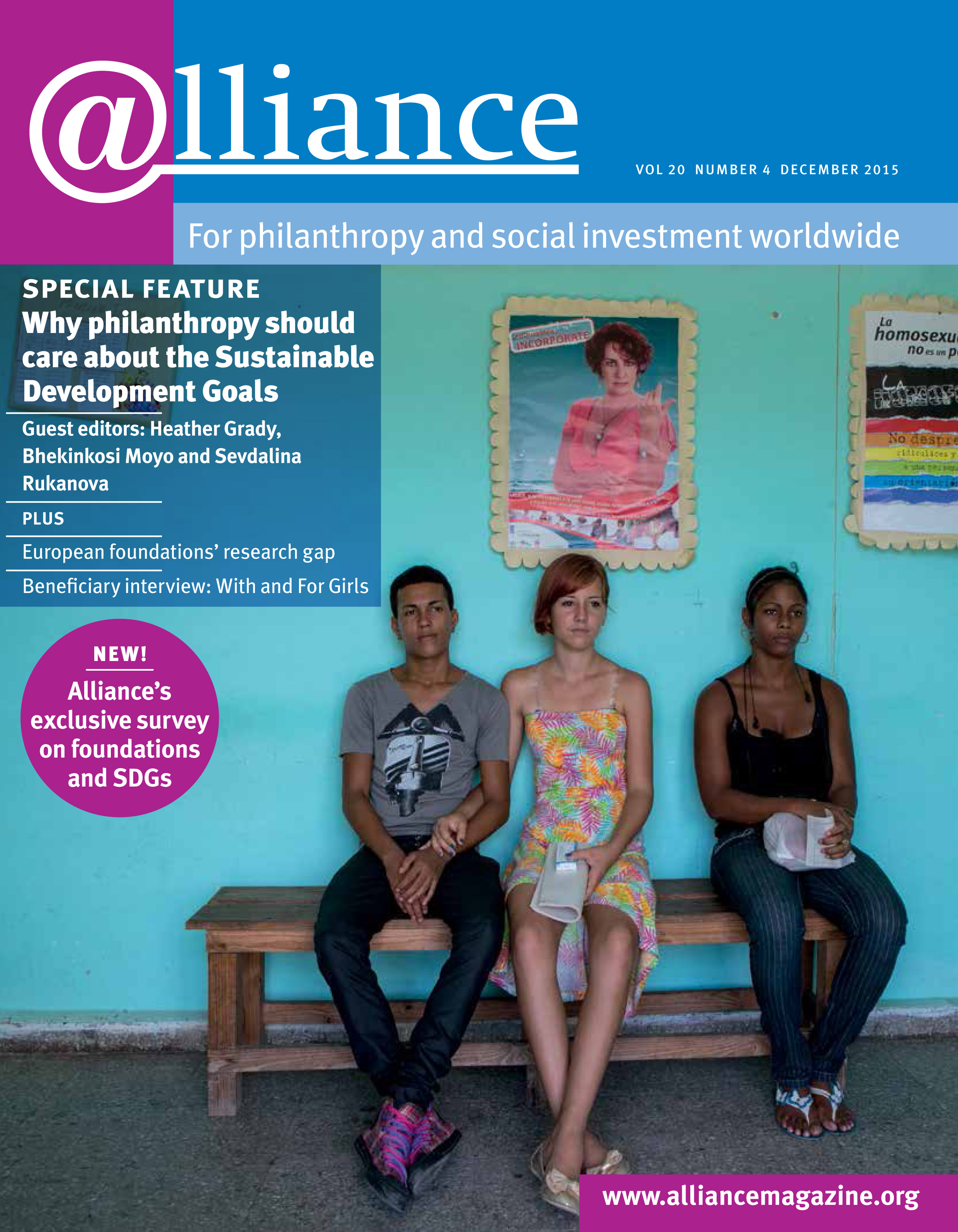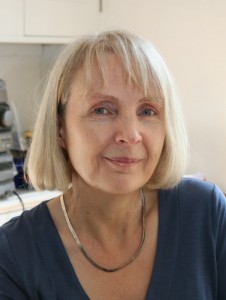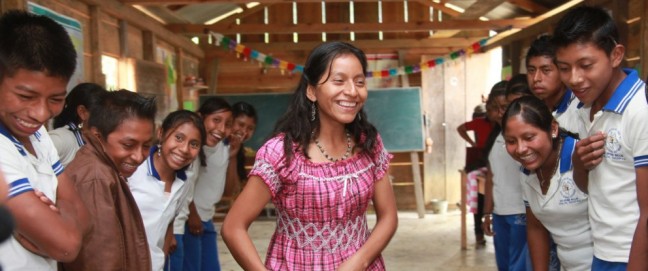It was about 20 years ago that Caroline Hartnell came to my office at the Ford Foundation. She was trying to garner resources for a new quarterly publication called Alliance. I was to find out later that this was her first foray into the world of fundraising. It didn’t seem like a first foray. Well, maybe it did a little. She had a very clear vision.
She wanted to put out a publication that would highlight the global philanthropic enterprise. Most people were just beginning to be cognisant of philanthropy as a global phenomenon. This publication, she said, would also differ from other mostly research-focused publications. It would be targeted at practitioners in resource-allocating institutions and organizations that support them. It would assess what was happening in the philanthropic slice of civil society, identify new trends and report on their impact on the field, and it would highlight the people most involved. It would do so often using the voices of the practitioners themselves.
All this without sacrificing the rigour of more research-focused publications. Caroline asked us for a grant of $25,000. We made an initial grant to Alliance of $50,000 – probably giving Caroline a somewhat jaundiced view of the fundraising enterprise that would not be helpful in future fundraising efforts.
There would be other grants to Alliance from a growing number of philanthropic institutions that exceeded our initial grant, including subsequent grants from us, but modest as this initial grant was, what would possess any self-respecting philanthropy body to make a grant twice the size of the ask?
The first reason was our assessment that Caroline needed more funding to put her vision in place. It is not unusual for a very committed grantseeker to try to strengthen the case for support by asking for less than is actually needed.
The second reason is that Caroline rightfully understood this as an area of deep concern to the Ford Foundation. The philanthropic enterprise was not just an arena into which one made a few grants to signal being a responsible member of the field of philanthropy; to us it was, in itself, a strategic programme area. The interest was global philanthropy itself and a particular component of this interest was to help sustain the global infrastructure of philanthropy: an infrastructure that represented the sector, provided the sector with the tools needed to be more effective, assessed its efforts, held its feet to the fire of accountability, and informed its practitioners about the trends in the field. Caroline’s vision put Alliance at the heart of all these aspects. And it is here that we have the third reason we willingly supported Alliance at twice the ask.
Put simply, that reason was Caroline herself. Grantmaking may increasingly be a science, but a fair measure of it will always reflect the craft that it is. You can never dot all the i’s and cross all the t’s necessary to make a risk-proof decision.
‘At some point short of complete information one must make a leap of faith. That leap of faith is almost always based on one’s confidence in the person leading the institution or the initiative. In this case it was Caroline.’
Complete and comprehensive information is seldom possible and certainly not in the timeframe necessary to make a funding decision. In fact, often the mark of an insecure programme officer is one who asks for more and more information to the point that it is not only onerous to the prospective grantee, but usually of little additional use in reaching a sound decision. At some point short of complete information one must make a leap of faith. That leap of faith is almost always based on one’s confidence in the person leading the institution or the initiative. In this case it was Caroline.
Caroline weathered the diversion from her vision that fundraising in a difficult environment entailed. She weathered the distraction the occasional upset practitioner posed. Her integrity was never questioned and she had the satisfaction of seeing her vision become a reality. As a result we are better informed, as a result we have a better view of what is brewing over the horizon, and as a result we know each other so much better. Caroline, a grateful field truly owes you!
Barry Gaberman is a retired senior vice president of the Ford Foundation. Email bgaberman@gmail.com







Comments (1)
Very heartening to see one pioneer in philanthropy praising another! Caroline helped to build a remarkable magazine and information service on a shoestring. All of us who care about philanthropy owe her a considerable debt.